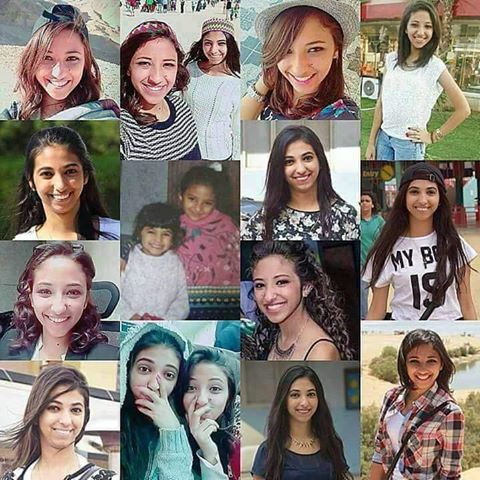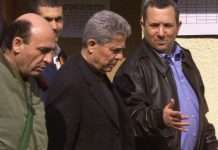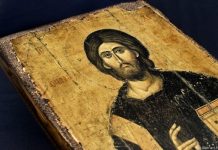Egypt Church Bombing Raises Calls to Uproot Bigotry
Agence France Presse/Naharnet/December 17/16/
Growing up in Egypt, Mina and other Copts remember all too well the anti-Christian slurs they used to hear at school and on the street. Once, while playing football, a Muslim youth snatched Mina’s necklace and crucifix and stomped on it. “I won’t forget that day,” said Mina, now in his 30s. Egypt is now trying to come to terms with the kind of religious bigotry behind a December 11 suicide bombing in a Cairo church that killed 26 people during Sunday mass.
“School curricula, some (religious) platforms and the absence of an enlightened current are what have led to this,” said Coptic Church spokesman Boulos Halim. Egyptian authorities have announced the arrest of four jihadist suspects. But the authorities must go much further and address the kind of prejudice running through Egyptian society that for decades has fuelled attacks on Coptic Christians, said Halim. “Police and military power have never been able to erase terrorism. It must be accompanied by the power of thought,” he said.
The attack claimed by the Islamic State group was the second church bombing in Egypt since 2011 and only the latest sectarian incident in the Muslim-majority country where Christians have long complained of discrimination. Copts, who make up about 10 percent of Egypt’s 90-million population, say they are sidelined both in the education system and state institutions.
Halim traces the roots of violence against his community to the 1970s, when then president Anwar Sadat empowered Islamists against his socialist opponents. Attacks by Muslims on Christians, especially in rural areas, carried on after Sadat himself was assassinated by jihadists in 1981 and succeeded by his vice president, Hosni Mubarak. In more recent times, Copts have also had to contend with Islamist extremists whose propaganda portrays them as outsiders and second-class citizens.
– Roots of discrimination -Some say the roots of discrimination can be found in schools.
Schools teach compulsory classes in religion, with Christians leaving classrooms during Islamic lessons to attend separate Christian religion tuition. In Arabic classes, Christians memorise Koranic verses — a primary reference for teaching the language — while Muslims are taught about Christianity from an Islamic perspective. “They don’t learn anything about my religion,” said Peter, a Copt in his 30s. Bigotry was one of the reasons that Peter, who asked not to be fully identified, left Egypt, saying it made him feel “like I’m not from this country”. Halim said confronting discrimination should involve government ministries as well as institutions from both sides of the religious divide. They should “create a national project to start a current of enlightenment among Egyptians”, Halim said. After Mubarak’s overthrow in a 2011 uprising, Copts came under attack again, with dozens killed in sectarian clashes and in a confrontation with the military in October that year. Under Islamist president Mohamed Morsi, fundamentalists regularly incited violence against Christians. Following his overthrow by the military in 2013, Muslim mobs attacked dozens of churches and Christian properties accusing the Copts of having sided with the army.
With former military chief Abdel Fattah al-Sisi’s election a year later, Copts hoped they had found an ally who understood the dangers of Islamist extremism. Sisi, who oversaw a bloody crackdown on Morsi’s supporters and pledged to wipe out a jihadist insurgency, became Egypt’s first president to attend a Christmas mass. His administration also finally regulated church construction under a law supported by the Coptic Church, though opposed by critics for retaining obstacles.
– Uptick in sectarian violence -“What happened is not enough to change ideologies,” said Halim.
There has been an uptick of sectarian incidents in 2016. In May, Muslim villagers set ablaze Christian homes and paraded an elderly Coptic woman naked over rumours that her son was in a relationship with a Muslim woman. In February, authorities halted the hiring of a Christian woman as a school principal after student protests in Minya province, south of the capital.
Violent attacks have increased, with clashes often ignited by rumours that Christians were building a church. Activists say extremist Salafi preachers are spreading hatred in non-mainstream religious services, some of them available online. “It is very clear that hatred is present in speeches. I don’t know what they (the authorities) are waiting for,” Halim said.
This year, four Coptic teenagers were convicted of insulting Islam after they recorded a video mocking the Islamic State group. The government prefers to defuse communal tensions or clashes between Muslims and Copts by holding “conciliation meetings” rather than applying the law, critics say.
Egypt Church Attack Prompts Fears of Militant Escalation
Associated Press/December 17/16
When a suicide bomber blew himself up in a Cairo church a week ago, it marked a bloody escalation by Egypt’s jihadi militants, raising fears that an insurgency which for years largely focused on fighting in the Sinai and killing policemen may now turn to unleash attacks on civilians in the country’s capital. A stepped up campaign by militants linked to the Islamic State group would be a heavy blow to a country trying to rebuild a wrecked economy and revive a vital tourism industry. The prospect is already spreading terror among Egypt’s Christians, who could be a main target. In fact, the militants may use Christians in an attempt to enflame sectarian divisions in Muslim-majority Egypt, following the strategy of the Islamic State group in Syria and Iraq. By targeting the minority community, the group may be betting it can sow chaos and undermine the government of President Abdel-Fattah el-Sissi while avoiding indiscriminate bombings that kill fellow Muslims and bring an even more furious public backlash.
“They are framing justification for sectarian violence in Egypt in the same way they do it in Syria and Iraq,” said Mokhtar Awad, research fellow in the Program on Extremism at George Washington University. A storm of attacks on civilians would be a frightening change for Egypt. Despite continued political unrest since 2011, Cairo and Egypt’s other cities along the Nile Valley have largely been spared such mass mayhem, even as Iraq, Syria and neighboring Libya have collapsed into chaos. Extremists linked to the Islamic State group have been waging an insurgency in the Sinai Peninsula in brutal fighting with soldiers and security forces. In Cairo, they have carried out small-scale attacks on policemen and soldiers, as well as assassinations of officials, but rarely mass bombings.
In the past two years, security agencies succeeded in breaking up multiple militant cells outside of Sinai, aiming to keep the insurgency bottled up in the peninsula. Northern Sinai is a hotbed of militancy with plentiful weaponry. Last year, the militants are believed to have smuggled a bomb on to a Russian jet leaving the Sinai resort of Sharm el-Sheikh, downing it in an attack that has devastated tourism there. But weapons and explosives are easily found across Egypt and can be smuggled in through the porous western border with Libya, a failed state where militias hold sway, said author and Sinai expert Mohannad Sabry.
“It’s a sprawling hub for explosives like TNT, just take a look at all the improvised explosive devices going off in Sinai and that the government claims it has seized — we are talking tons,” he said. El-Sissi has fashioned himself as the leader of the fight against Islamic militancy in the region, portraying his crackdown on Egypt’s previously ruling Muslim Brotherhood as part of that wider battle. The new attack could be a move by militants to shake confidence in him at a sensitive time, after introducing painful economic reforms.Last Sunday’s suicide bomber hit a church linked to the main cathedral of Egypt’s Coptic Christian Church, ripping through a crowd of mainly women worshippers, killing at least 26 and wounding dozens more. It was the deadliest such attack on Christians in years, recalling a 2011 suicide bombing at an Alexandria church that killed more than 20.
The government said Sunday’s bomber was a former supporter of the Brotherhood who joined militants. Later, the Islamic State group claimed responsibility. Egyptian officials, however, have kept their focus on the Brotherhood, the Islamist political movement whose leader, Mohamed Morsi, was ousted from the presidency by the military in 2013. On Monday, the Interior Ministry said exiled Brotherhood leaders provided “financial and logistical support” for the church bombing. Spokesmen for the Interior Ministry, responsible for police, as well as the Foreign Ministry, did not respond to requests for comment on whether they believed the bombing signaled the start of a wider campaign.
But a recent uptick in attacks has shown how violence has evolved the past two years. New groups such as one known as Hasm have emerged, launching high-level assassination attempts and attacks on security forces in mainland Egypt, including one that killed six policemen outside Cairo last week. The militants could unleash a wider, indiscriminate campaign of violence, including against tourist sites — though tourism already is low. But they run risks in broad mass attacks. Egypt is more homogenous than Iraq and Syria, with virtually no Shiites. An Islamic militant campaign in the 1990s against the population as a whole produced mass resentment rather than turning the people against their leaders, and IS has been cautious of repeating that.
More likely, they could be trying to push the security agencies into mass arrests or abuses that could stoke resentment and further radicalize some. In the aftermath of the bombings and at the ensuing funerals, many Christians shouted angry anti-government slogans, echoing a long-standing charge that the government’s security state is neglecting the most vulnerable segment of the population — theirs. El-Sissi himself has denied the church bombing was due to a lapse in security. “In the present context, any attack on Egypt’s Christians is bound to both embarrass the government and its pretense to restoring law and order and erode popular support for the el-Sisi regime,” wrote Michael Hanna, a senior fellow at the U.S.-based Century Foundation. “But more importantly, those effects can be achieved while not risking broad-based backlash, with Egypt’s ingrained sectarianism insuring that outrage remains real but limited.”






















